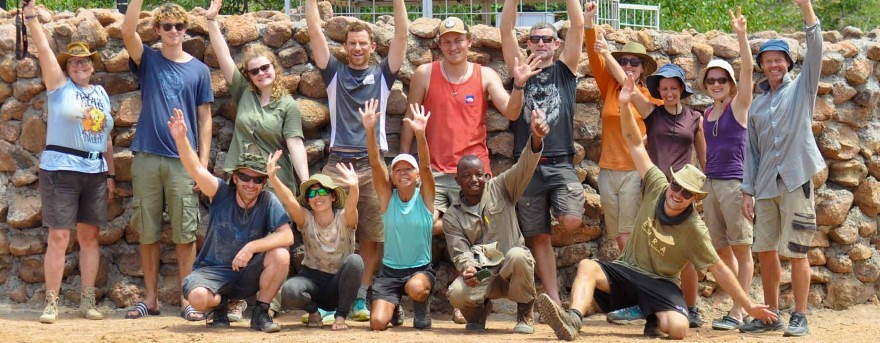20 years helping desert elephants
Project & Pod News / 14 August 2024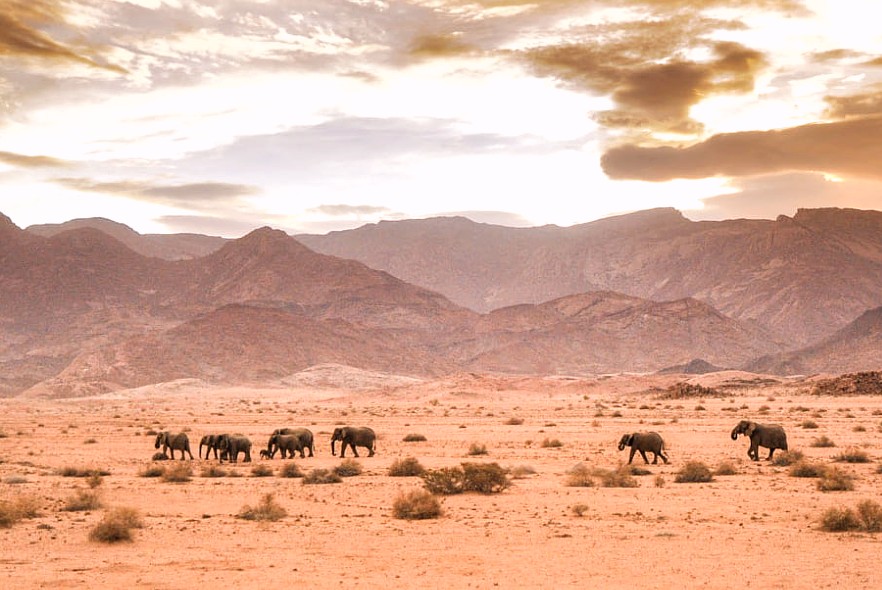
Over the past 20 years, the Desert Elephant Conservation team in Namibia have achieved significant milestones in mitigating human-elephant conflicts. They assess the diverse ways free-roaming wild elephants negatively impact people’s lives and livelihoods, and trial and apply measures to foster peaceful coexistence between communities and the desert elephants. The project's ultimate aim is to safeguard elephant survival beyond National Park boundaries by employing strategies centred on harmonious living and habitat protection.
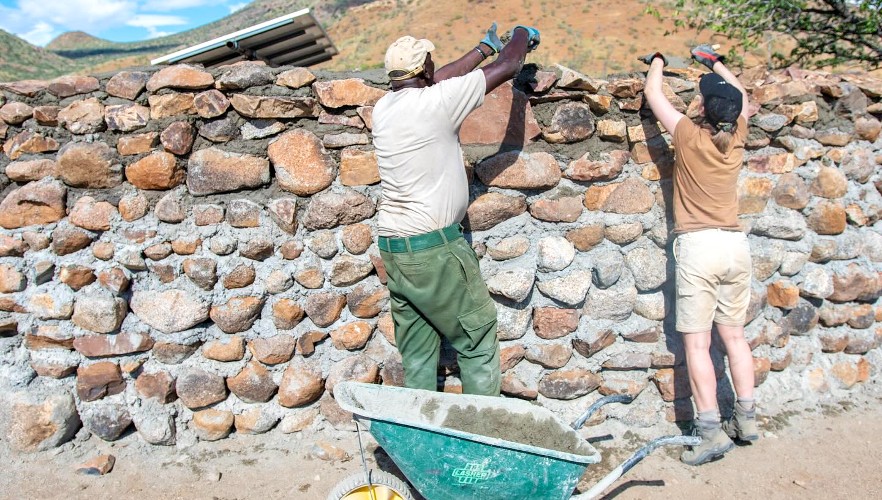
One of the projects major accomplishments over the last two decades is the construction of 239 water point protection walls and 10 elephant dams, providing water sources for elephants at a safe distance from villages. The majority of elephant-caused damage is to water structures, so protecting the tanks, pumps, and pipes from elephants is a crucial first step towards peaceful coexistence. The Protection Wall Program was the first project the launched back in 2003 and, with the help of volunteers, over 9500 people have been helped to live peacefully with reduced elephant conflict.
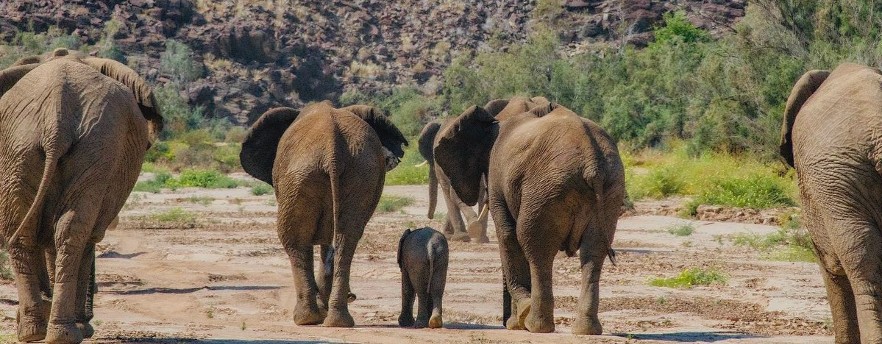
Over the last 20 years the project has been able to build, supply, train and record the following:
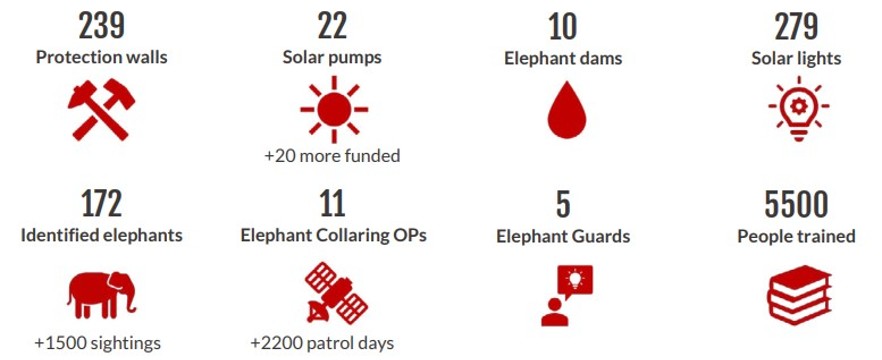
The project monitors elephants within 2 Elephant Management Areas (EMAs): Greater Omatjete and Kunene South EMA. Greater Omatjete has made significant strides in conservation by implementing special action steps for each farm and village to live peacefully beside the elephants.
Despite all the team are doing to foster coexistence it’s a challenging situation, with the population under pressure from both human and natural causes. The team collect vital data on the elephants throughout the year via collaring, surveys and elephant patrols. Here are the findings from their research:
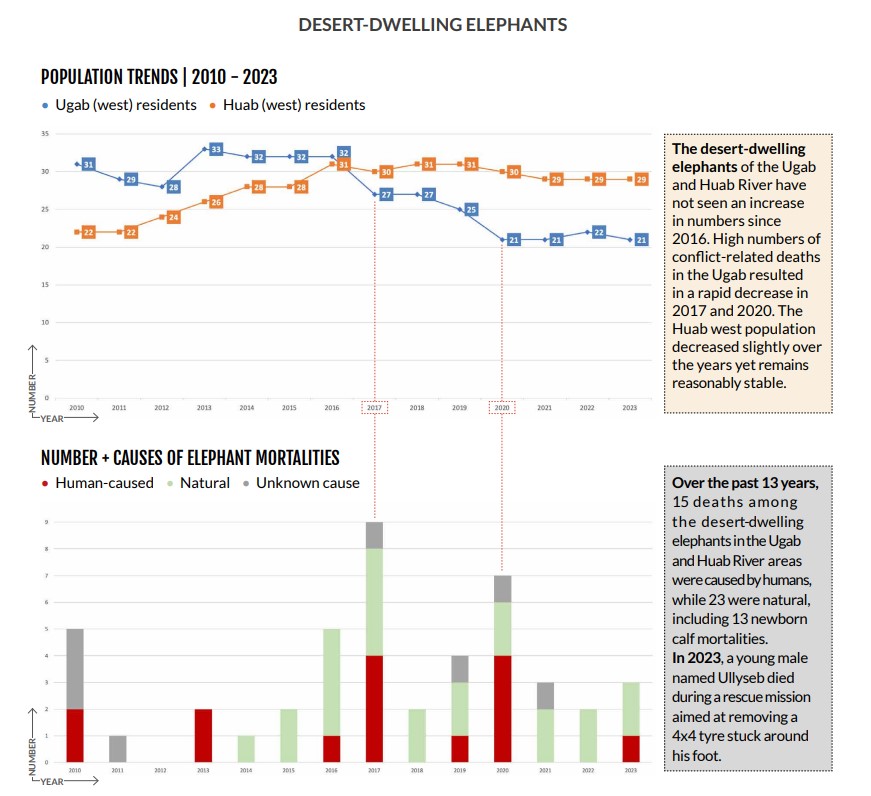
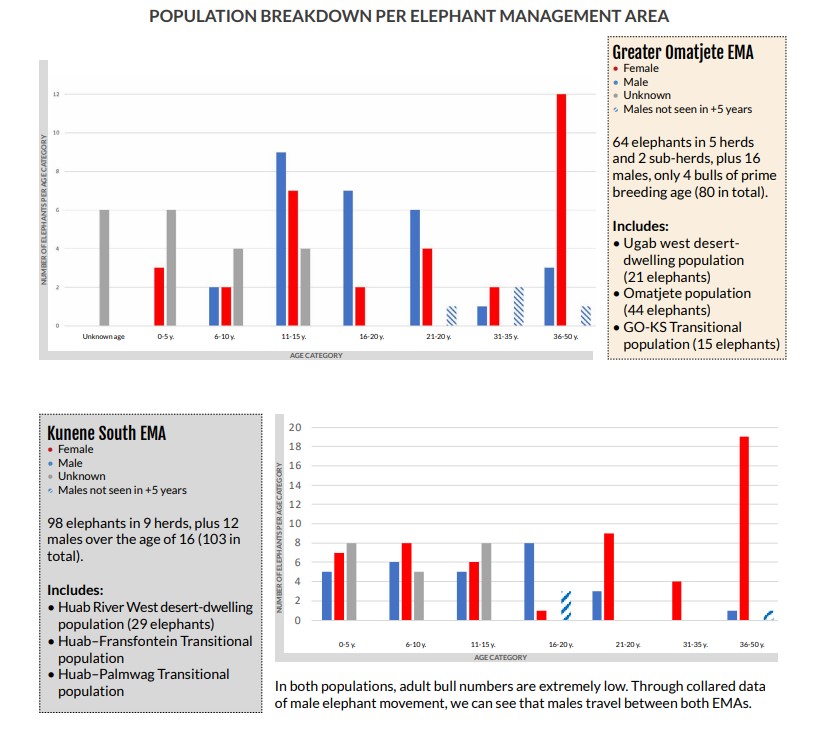
Over the years over 2,900 volunteers have chosen to join the Desert Elephant Conservation project in Namibia to give their time and support to help protect the elephants and communities.
